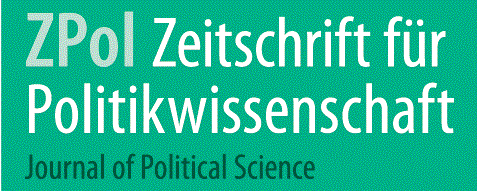Following its break with the Soviet Union in 1991, Estonia turned away sharply from Moscow’s eco- nomic policies. The new government increased reliance on markets, acquired new trading partners, and began to model itself after nearby Nordic countries such as Finland and Sweden. In that changed environment, enhanced national competitiveness—the ability of firms and farms… Weiterlesen »
Archiv / Jahrgang 2015
Mapping a Transformation Journey: A Strategy for Malaysia’s Future, 2009-2010
In April 2009, Koh Tsu Koon was in his car on the way to Malaysia’s capital from his home in Penang when the radio announced his appointment to a brand-new ministerial post in the Cabinet. The country’s new prime minister, Najib Razak, had named him Minister of National Unity and Performance Management. “I nearly fainted,”… Weiterlesen »
Forgoing a National Strategy Through EU Accession: Serbia, 2007-2012
If there was one thing most Serbian citizens could agree on in 2004, it was the need for a new national vision. Serbia was still reeling from the crises and conflicts of the 1990s. The multiethnic federation of Yugoslavia had collapsed violently. The republics of Bosnia, Croatia, Slovenia, and Macedonia had seceded, leaving behind a… Weiterlesen »
Strategic Privatization: Railway Transportation in the 21st Century
Spring 2008 Wolfgang Tiefensee, Germany’s Federal Minister for Transport, Building, and Urban Development from the Social Democratic Party of Germany (SPD), stated at a press conference on April 15, 2008 that the SPD Commission’s proposal to partially privatize the Deutsche Bahn Corporation was a “decisive step” in the privatization debate and confidently declared that the… Weiterlesen »
Peer Producing Public Policy: Nicholas Negroponte, Walter Bender, and the OLPC
In April 2008, Walter Bender sat down at his laptop. For the last two years, he had worked at One Laptop per Child (OLPC), more often referred to as the $100 laptop project. This non-profit organization hopes to change the world by constructing a cheap and robust laptop to be used in the education of… Weiterlesen »
Aerospace Clusters and the German Dual Vocational System: Addressing the lack of skilled technicians in emerging regions
In 2013, three prominent aerospace firms in Mexico were facing the scarcity of skilled technicians: GNK Aerospace in Baja California, Tetakawi Maquiladoras in Sonora and Bombardier in Querétaro. With 287 aerospace firms already in Mexico and an expected 14% annual export growth, or $12.3 bn by 2021, the firms needed immediate access to a pool… Weiterlesen »
Horizon 2020: Shaping EU Innovation Policy through Interest Representation
The European Union has been long investing in promoting research and innovation across its Member States with the objective of increasing the competitiveness of Europe. These efforts include not only direct funding to research and innovation but also significant efforts in coordination to ensure the results of European scientific research have a real impact on… Weiterlesen »
Last Stop, Berlin Central Station: Reuniting Germany’s New Old Capitol
It was December 16, 1999 when Hartmut Mehdorn finally assumed the role of CEO at Deutsche Bahn, Germany’s privatized railway operator. Mehdorn, who previously headed several major industrial companies in his fast-paced career, had already been proposed by the Deutsche Bahn management when Heinz Duerr’s era ended in 1997. His management style was perceived as… Weiterlesen »
Die soziale Schieflage der Wahlbeteiligung: Abwärts! – Die Fakten zur Wahlbeteiligung im Sinkflug (Teil 1/5)
Nach fast jeder Wahl in den letzten Jahren ist es das gleiche Bild: Die Wahlbeteiligung ist erneut gesunken, Medien und Politik beklagen dies und spätestens nach einigen Tagen geht das Interesse am Thema wieder verloren. Äußerst selten erfolgt im Rahmen dieser Phasen eine ernsthafte Diskussion der Ursachen und Folgen der sinkenden Wahlbeteiligung. Meistens gibt es… Weiterlesen »
Beyond fast‐track secondary schools. The piecemeal hollowing out of the G8 reform in Hessen
“October 27, 2008 was the end of a political era. It was not much of a party that took place during the election night at the headquarters of the Christian Democratic Union (CDU) in Wiesbaden, the capital of the regional state of Hessen. The place to go to attend victory celebrations was somewhere else. The… Weiterlesen »





